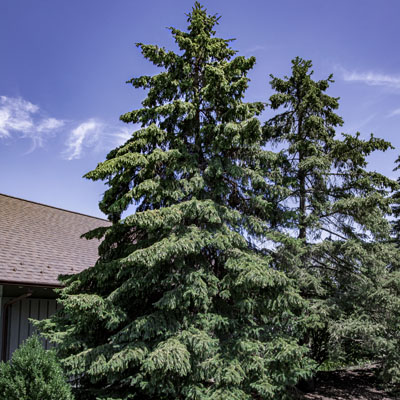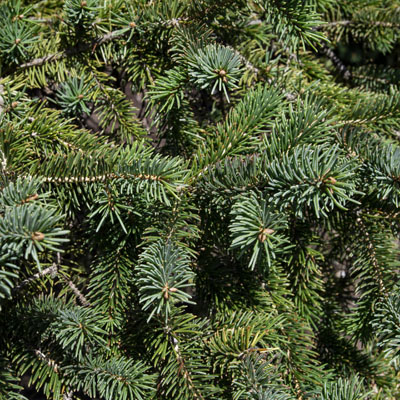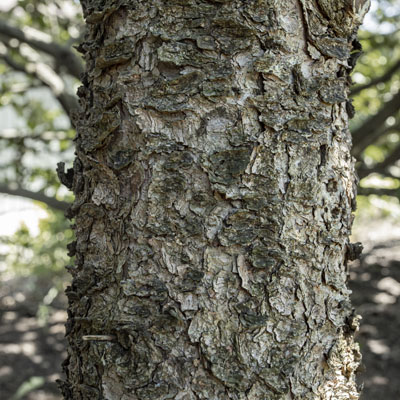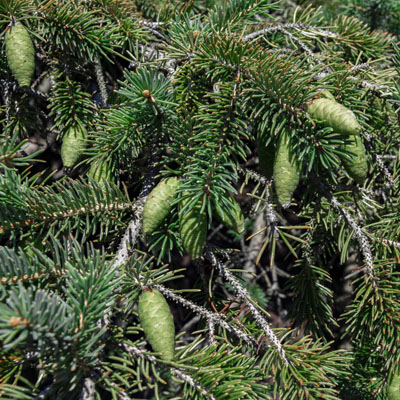Tree Catalog - Best Trees For Dayton, Ohio
Welcome to the Arbor Experts Tree Catalog, where you'll find photos and complete descriptions of the trees we most highly recommend for the Dayton, OH area. All of these trees will do well here and would be a beautiful addition to your yard.
Black Hills Spruce
Picea glauca 'Densata'




This tough cultivar was discovered in South Dakota, where it is the state tree. It's a cold-hardy tree that can be grown as far north as USDA zones 2 or 3.
Note - Don’t confuse its common name of “Black Hills Spruce” with the black spruce, Picea mariana.
Characteristics
The Black Hills Spruce is a tightly upright, conical tree with smooth gray bark that can reach 40’ at maturity, with a narrow 15’ spread.
Its form and dense branching make it ideal as an accent tree where it has enough room to grow to its full size and show off its vertical form. It also makes a good windbreak or shelter tree.
New leaves are pale when they first appear but quickly become the bluish-green that is maintained throughout the winter (the word glauca in its name refers to the tree's bluish-green foliage).
Don't let the fine texture of the needles deceive you - overall, this is a very tough tree.
Growing Tips
Black Hills Spruce is a slow-growing, long-lived tree with low, spreading branches. It is too large to plant under power lines and does not tolerate urban salt and pollution, so reserve it for places in your landscape where its full size can be accommodated.
This tree is adaptable and hardy, but requires full sun or only slight shade. It can handle periods of drought and dry soil, but medium soil moisture should be maintained during hot weather. Under typical garden conditions, it will thrive as it does not require a particular soil pH to grow.
Because its foliage is so dense, it should be planted in an area with good air circulation (to reduce moisture on interior leaves and prevent fungal problems).
Its dense form needs only occasional, light pruning of new growth to shape. Deer do not pose a problem for this tree.
Things to Look Out For
Because Black Hills Spruce is native to northern hill country, the high summer heat and humidity in lower, warmer elevations can be hard on this tree. Zone 6 is the suggested limit and, within zone 6, you should site this tree where the soil is well-drained and retains some moisture, and where there is air movement.
There are no severe pest issues with the Black Hills Spruce, but pests and pathogens common to evergreens can occur. Well-draining soil reduces the chance of root rot, sufficient water to maintain vigor helps the tree to resist mites, budworms, and beetles, and good pruning with clean tools reduces the chance of cankers. Areas of rust on needles are seasonal and not fatal.
Repeated or heavy pest infestations can reduce any tree’s vigor, and spraying for sawflies, budworms or beetles may be required if the tree’s health is threatened. Always have a professional do this work to ensure thorough coverage of the Black Hills’ dense foliage and for safety in reaching the top branches that can be 40 feet above ground level.
